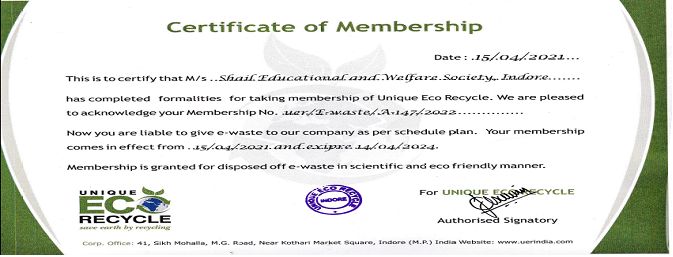 Important Documents For Admission (2025 - 2026)
Important Documents For Admission (2025 - 2026)
The facilities in the Institution for the management of the following types of degradable and non-degradable waste are as follow:
The garden waste and kitchen waste of the Institute is converted into organic fertilizer. Organic fertilizer is being produced in a specific area where we have four composting pits. In the institute huge amount of organic waste is produced in routine and it is managed properly. Most of these wastes are biodegradable and can be converted into valuable resources that reduce their negative impacts. As a output of this composting process organic fertilizer is produced which is used in organic farming of the institute.
Approx. Production Capacity after decomposing
Approximately 40-50 % weight conversion of raw material into organic fertilizer is achieved. Near about 100 Kg raw materials produce approx.30 kg organic manure within a month. This process is monitor by Chemical department and maintained by civil department.
Organic fertilizer in market:-Rs. 30 to 50/- Per Kg.
Organic fertilizer, which produce in IIST campus: – Approx. Rs. 15/- per kg

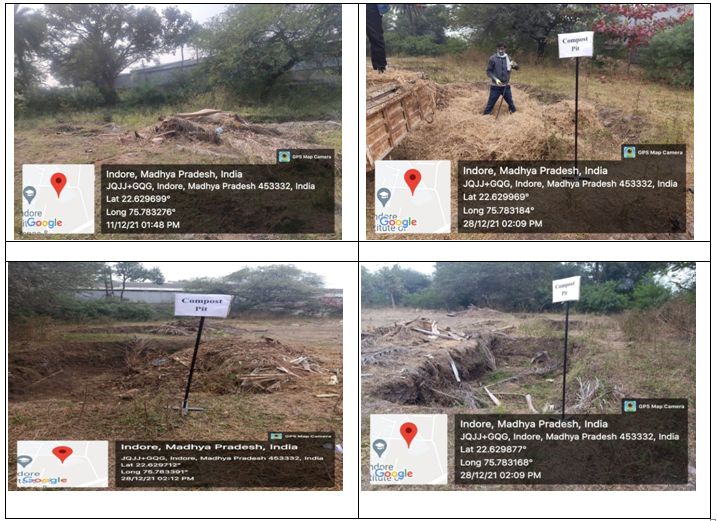
Institute is part of Indore District (Indore City) which is Fifth time cleanest city in India. Although institute is located in rural area, but follows all guideline and norm defined by Municipal Corporation of Indore.
As a best practice we collect the “Gila Kachra” and “ShukhaKachra” generated in the campus into the separate green colored and blue colored dustbins, and then the “SukhaKachra” is sent to the Nagar Palika for further processing, and “Gila kachra” is composed in the campus itself for generating organic manure as described above. Total 30 dustbins are placed at different locations. ( 16 Outside and 14 In Main building).
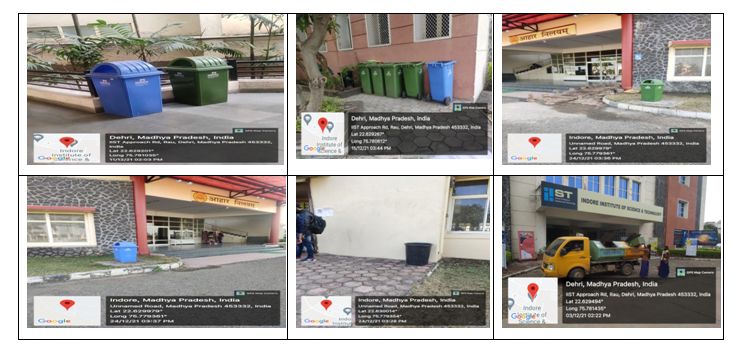
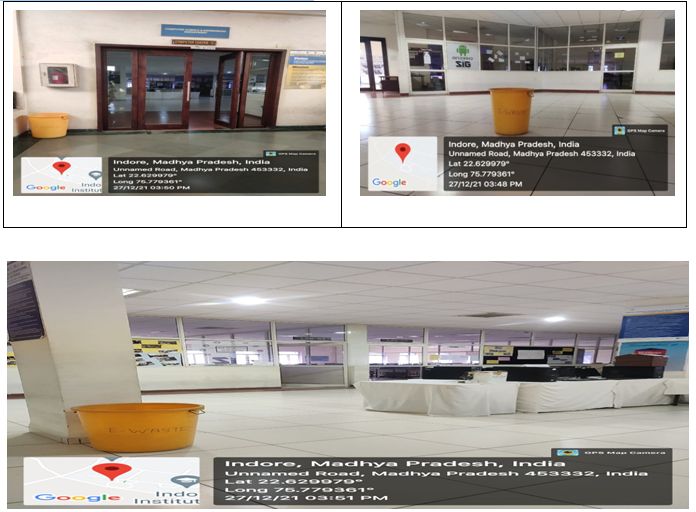
Biomedical waste like sanitary pads and other medical waste are incinerated in incinerators. For the disposal of sanitary pads we have a separate sanitary pad incinerator in the girl’s washroom.
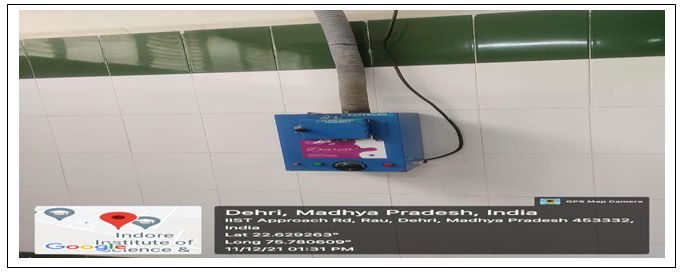
The Indore Institute of Science and Technology, Indore has undertaken a number of E-waste Management initiatives with the objective of creating an eco-friendly environment in the campus. The institute has donated the old computers to the physically disabled students and peons. Apart from that the scrap parts of the machines has been resold to the computer servicing shops to reduce the amount of e waste. And there is a separate collecting dustbin for the small e waste like microchips wires etc.
